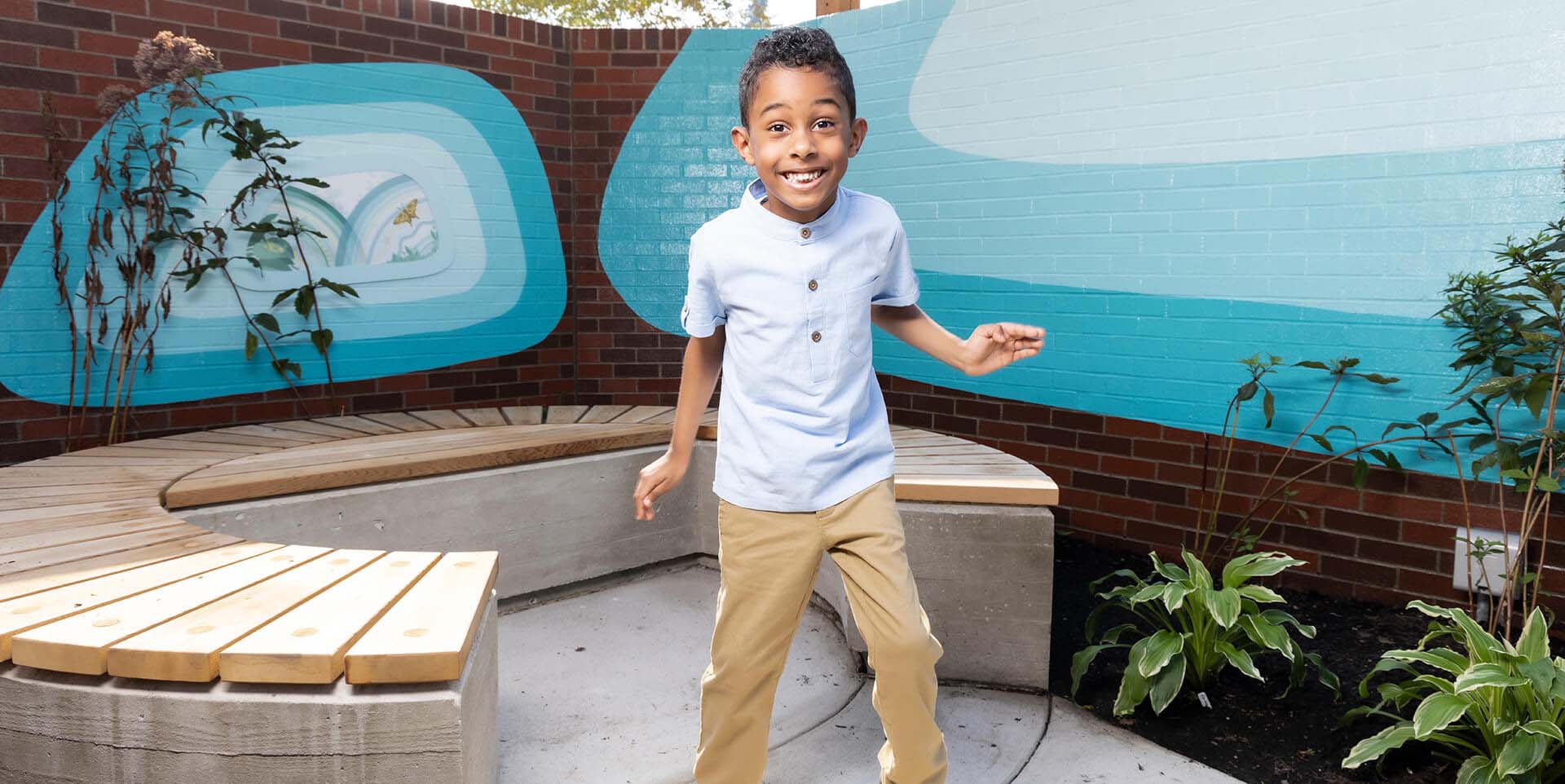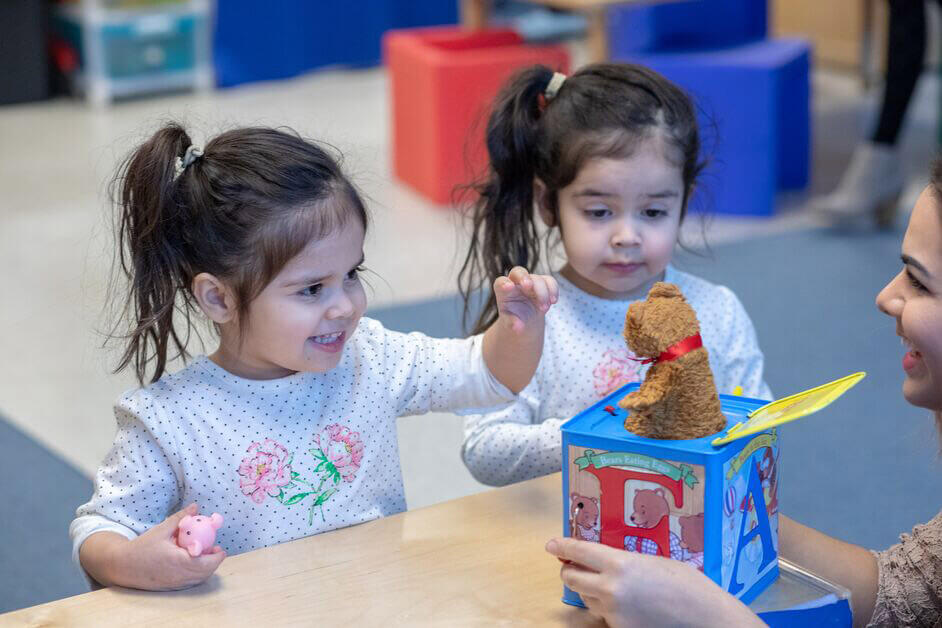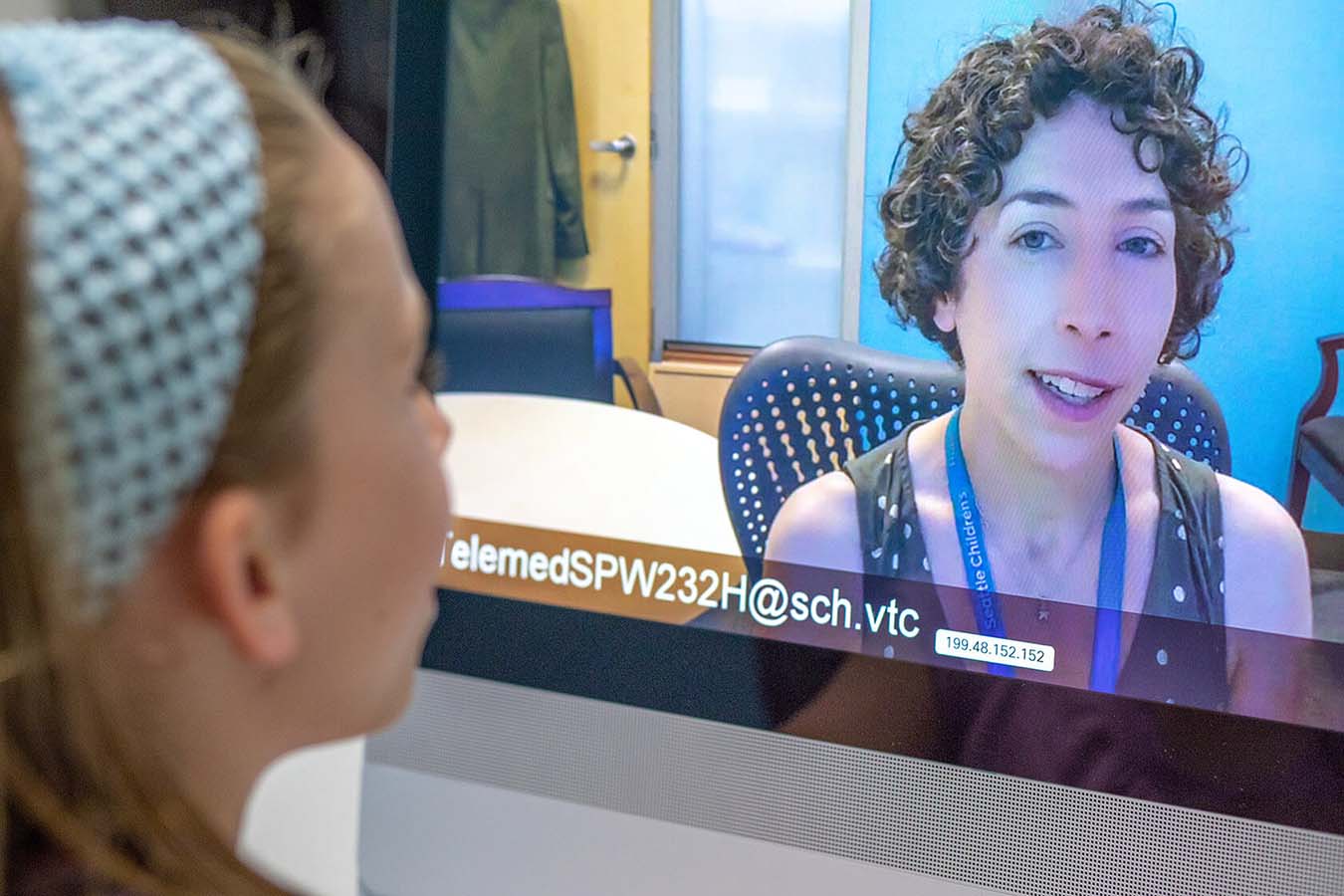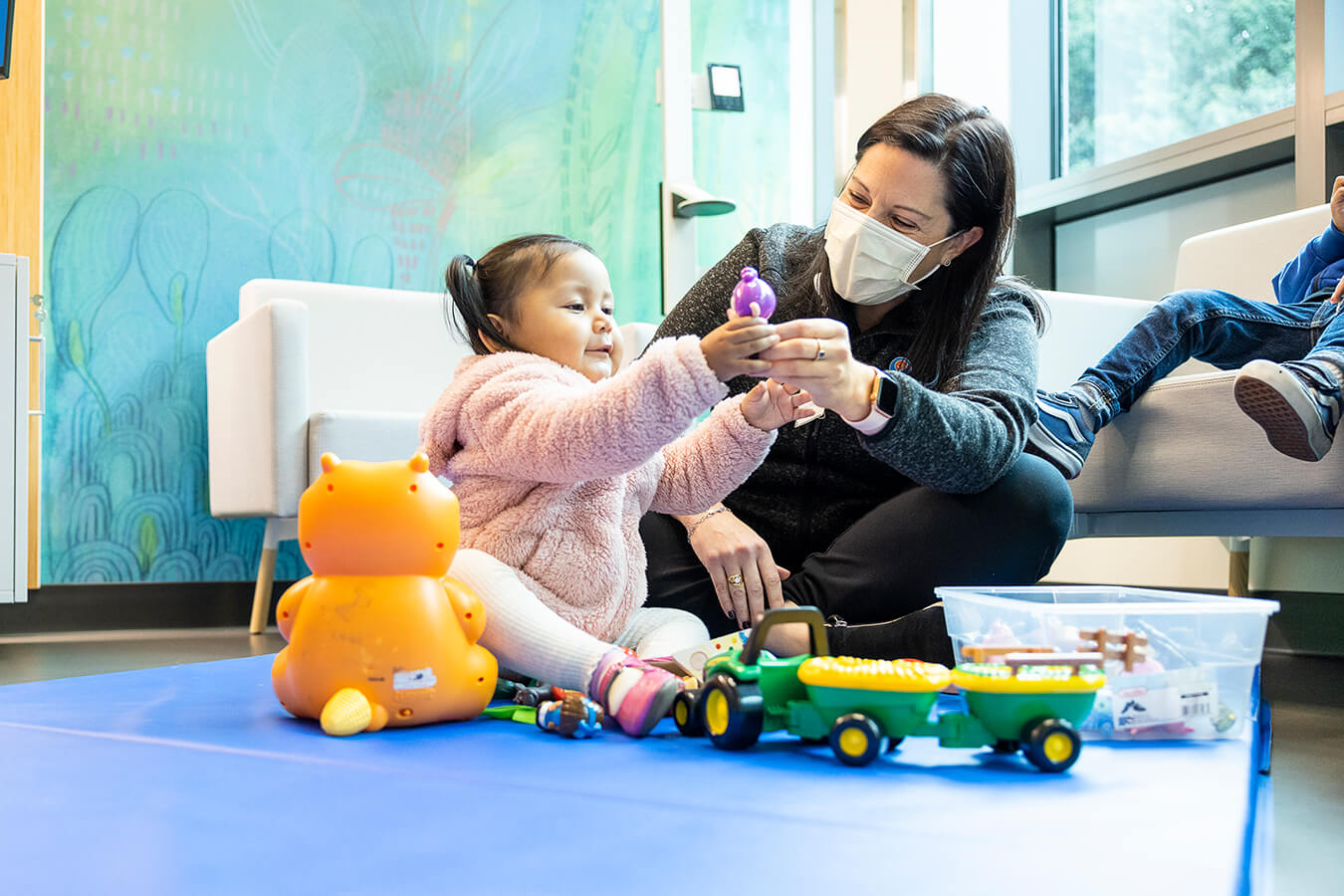
Child health always includes mental health.
Generation REACH: Transforming Mental Health Care for All Youth and Families
Locally and nationally, we are experiencing a youth mental health crisis. Youth suicide rates were rising before the pandemic, and COVID-19 has had a significant impact on youth.
One out of every 5 kids has a mental health disorder that significantly affects their life, and currently only about half of those kids get treatment.
Seattle Children’s has made a long-term commitment to mental and behavioral health as an inextricable part of child health. This organizational commitment combines generous philanthropic support with a multiyear commitment through our strategic plan.
Seattle Children’s is convening a coalition to reimagine pediatric mental health care so that all children, teens and families can live their healthiest and most fulfilling lives possible.
This means every child would have access to the support and resources they need to succeed and to be happy, safe and well within their family, school and community.
Now is the time for a once-in-a-generation collaboration to transform the behavioral health paradigm. Youth mental health is a growing crisis that has been further complicated by the COVID-19 pandemic and related economic turmoil. And for too long, Black, Latinx and Indigenous people have been underserved by the mental health system and under-represented among mental health providers.
The intent is to involve youth, families and a broad coalition of community partners who represent the communities we serve.
Together, we will meet the need for timely, effective crisis intervention and care for families whose children have serious mental health challenges. To reduce future crises and to support mental wellness, we will move to include preventive and strengths-based approaches and away from a singular focus on problem-based models of care. We will build upon positive attributes and skills that support social and emotional well-being for all youth and their families. We will join forces with the many others who are working to eliminate youth suicide.
Generation REACH Has Five Areas of Focus

Research and Innovation
- Innovate new, strengths-based models of care that go beyond addressing vulnerabilities and cultivate children’s and teens’ social and emotional intelligence and abilities.
- Accelerate the pace of progress by infusing research into everything Seattle Children’s does — leveraging clinical and policy research to develop new and more effective ways to identify root causes and prevent and treat mental health problems.
- Unlock the mysteries of the developing brain and understand the impact of genetics, nutrition, social interaction, traumatic experiences and nurturing.
Progress: During the pandemic we made quick, innovative pivots to offer mental health treatment via telehealth. We’re continuing to develop stepped models of care to increase access to treatment equitably.
Seattle Children’s is the anchor institution for children’s mental health care across five states, and the resource regional providers turn to for evidence-based consultations and advice on everything from the most common to the most difficult questions. Our mental health experts are always striving to improve care through research — from research on the developing brain to applied research that seeks better ways to promote mental wellness. Every day, we serve youth and families from small towns and big cities who speak many different languages and think about mental health from many different points of view. They inspire us to make sure child health always includes mental health, and that the care we offer is timely and tailored to the needs of each family.
– Dr. Larry Wissow, division chief, Raisbeck Endowed Chair in Pediatric Psychiatry and Behavioral Medicine, Seattle Children’s

Ecosystem and Equity
- Connect families to care when and where they need it, in ways that are linguistically and culturally appropriate to each child and family. Develop services and capabilities in the geographic areas of highest need.
- Integrate mental health into primary care practices in our network and embed mental health providers throughout our system so that regardless of where in the Seattle Children’s system they are seen and what they are seen for, children and teens are cared for by someone who understands behavioral health.
- Create capacity in the community through training and consultation.
- Focus on “upstream” interventions that promote thriving and reduce the need for higher-intensity mental health services.
- Ensure seamless transitions between different services and different levels of care, with a special focus on preventing readmission to inpatient care.
- Recruit, develop and support a diverse workforce at Seattle Children’s that reflects the communities we serve.
Progress: We’ve integrated behavioral health into multiple primary care practices through the Seattle Children’s Care Network, and launched mental health services at our North Clinic in Everett, Washington. Our new Child and Adolescent Latino Mental Health Assessment and Treatment Clinic (CALMA), provides culturally responsive mental health care in Spanish and English.
“The most effective mental and behavioral health services reach people where they are: in the language they speak, using culturally meaningful approaches. That’s why we’re committed to developing a skilled mental and behavioral health workforce that reflects the youth and families we serve.”
— Laura Knapp, vice president, Mental and Behavioral Health Services

Access
- Meet the need for crisis intervention with innovative models that connect families with timely, stabilizing mental health services and appropriate follow-up care.
- Collaborate with our community partners to develop and test innovative delivery and technology systems that promote equitable access to a full continuum of services.
Progress: We’ve expanded our continuum of care for youth with eating disorders, and launched crisis care clinics specifically for youth experiencing suicidality or aggression.
We want as many parents as possible to have the best tools to support their child’s progress — whether it be for a return to the classroom or any other milestone. Funding to develop a training infrastructure would allow us to teach proven, evidence-based practices to a wide range of community partners, including therapists. Wide dissemination of these tools to parents means kids would have the effective support they need to work through their challenges instead of reaching a crisis point feeling alone and afraid. Philanthropic dollars can make this happen.
— Dr. Carol Rockhill, child and adolescent psychiatrist, leader of a school avoidance group for parents at Seattle Children’s

Capital
- Create a behavioral health innovation hub to bring together mental and brain health experts from across Seattle Children’s to facilitate clinical collaboration and accelerate research, including ongoing work to illuminate root causes of mental and behavioral health conditions.
Progress: The Autism Center and outpatient Psychiatry and Behavioral Medicine services moved into a newly remodeled, combined location in December 2022. The space is intentionally designed for youth with autism and/or behavioral health needs, and was made possible by the generous support of our community, particularly the Sunderland Foundation and the Norcliffe Foundation.
Co-locating our autism and mental and behavioral health services under one roof, in a space that was specifically designed for the needs of our patients, creates synergies between mental and brain health experts from across Seattle Children’s and will lead to new ideas and models of care that will benefit kids in our region and beyond.
— Dr. Mendy Minjarez, executive director, Seattle Children’s Autism Center

Healthy Families and Communities
- Ensure parents, siblings and community members understand and support a child’s journey toward mental wellness. Every person’s mental health is influenced by their family and community.
- Partner with organizations and individuals in the communities we serve to provide services that promote social and emotional well-being and resources that help children and their families thrive.
- Reduce the stigma associated with mental health problems.
- Commit to long-term outcomes. Connect to families for as long as they need us and develop technology and tools to measure outcomes longitudinally and across domains.
Progress: We’ve launched free, video-based community classes to help families navigate the mental health care system in Washington state.
Mental health affects the individual, their family and all aspects of life including physical health and wellbeing. We must make mental health care a priority — and emphasize early intervention — in order to advance long-term positive outcomes for children, adolescents and emerging adults.
— Dr. Yolanda Evans, adolescent medicine specialist and researcher in the Center for Child Health, Behavior and Development, Seattle Children’s
When I was in seventh grade, a two-week absence due to illness kicked off a vicious cycle where the pressure of missed homework and fear of lower grades led me to refuse to go to school — a strategy that spiraled into more missed homework and actual lower grades. After five weeks away from school, I saw a psychiatrist at Seattle Children’s who prescribed anxiety medication that helped me finish the school year. But in eighth grade, the cycle started up again after my great-grandmother died and I got really depressed. I hated myself for missing school, and as each day passed, I hated myself more and more. I decided that I couldn’t keep repeating the cycle every day. That night, I tried to kill myself. Fortunately for me and my family, I didn’t die. Over the next three years, I worked with Dr. Carol Rockhill, a psychiatrist at Seattle Children’s, and a community therapist to address the root cause of my distress: anxiety. Today, I’m thankful for the help I got and am truly enjoying life as a student at University of British Columbia.
— Sam Duenwald, 21
Join the Generation REACH Coalition
One of the biggest influences in a child’s life is their community. For children, teens and families who are struggling, community can make a huge impact on their healing. Together, we — Seattle Children’s, a broad group of partners and, most importantly, you — are the community who will ensure all youth and families get the right behavioral health care when and where they need it. If not us, then who?
Help reduce stigma
You can be a change agent for youth mental health. Here are some ways you can help reduce stigma associated with mental health and mental health care:
- Learn about mental health and educate others. Get the facts about signs and symptoms, and share with your family and friends.
- Treat mental health and physical health equally. Cultivate habits to support mental as well as physical health. Speak about seeing a therapist the same way you would talk about seeing a pediatrician or a dentist.
- Share your story and listen with compassion when others share theirs. Sharing mental health challenges promotes understanding and empathy.
Donate to support mental health care
Generous support from our community is essential to build new programs, expand existing ones and accelerate research into root causes that will benefit kids in our region and beyond. Together, we can change the paradigm of mental health care to reduce future crises and support mental wellness.
Current healthcare payment models reward procedures and interventions; it’s much harder to get reimbursed by insurance for problems we prevent. The support of our community is essential to build new programs, expand existing ones and accelerate research into root causes that will benefit kids in our region and beyond.
That’s why the generosity of donors like the Sunderland Foundation, the Norcliffe Foundation, the Anu and Satya Nadella family and the Seattle Children’s Guild Association is enabling us to begin the work of transforming youth mental health care for all children and families. Join us.
Philanthropic support of Generation REACH will:
- Change the landscape of behavioral health services by galvanizing more preventive, upstream interventions that empower families and community partners and improve longterm mental health outcomes for kids and teens.
- Support and sustain innovative models of care and the systems that bring breakthrough thinking directly to kids and families.
- Capitalize on Seattle Children’s existing sites of care, culturally responsive family support and new technology.
- Open more doors to treatments that meet the needs of families in crisis while developing flexible care options that are sustained over time.
- Build spaces across the region that are tailored to specialized behavioral health care.
Now is the time for a once-in-a-generation effort to shift the paradigm of youth mental health care. As trusted experts in pediatric health, Seattle Children’s has the plan, the people and the passion to lead the charge. There is no time to waste for youth who are suffering now — and for children yet to come — because all kids deserve to live their healthiest, most fulfilling lives possible.
— Dr. Jeff Ojemann, chief medical officer and co-chair, Neurosciences Center, Seattle Children’s